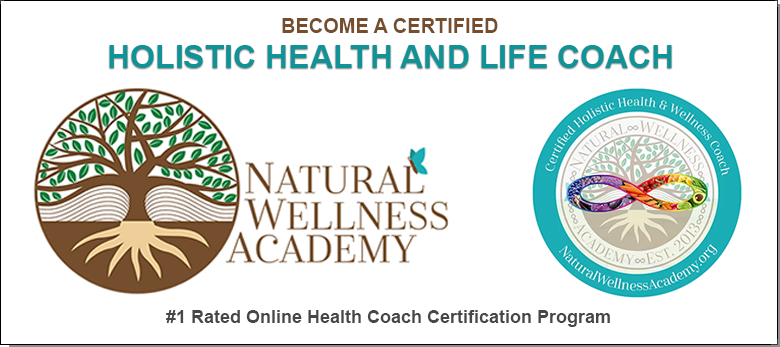
In today’s fast-paced world, achieving a state of complete wellness can seem daunting. However, balancing the body, mind, and spirit is crucial for a fulfilling and healthy life. Here we explore the principles of holistic health, emphasizing the interconnectedness of our physical, mental, and spiritual well-being. By understanding and applying these principles, you can create a harmonious lifestyle that nurtures every aspect of your being.
Contents
Understanding Holistic Health
Holistic health is an approach to wellness that considers the whole person, integrating physical, mental, and spiritual aspects.
Historical Background
Holistic health is rooted in ancient practices and has evolved over centuries to become a recognized approach to modern wellness.
Ancient Practices
Ancient civilizations, such as those in China, India, and Greece, recognized the importance of balancing the body, mind, and spirit. Traditional Chinese Medicine, Ayurveda, and Hippocratic medicine are some of the earliest systems that emphasized holistic approaches to health.
Evolution of Holistic Health
Over time, holistic health has adapted to incorporate new understandings of the human body and mind. The 20th century saw a resurgence of interest in holistic practices, influenced by both Eastern and Western medical traditions. Today, holistic health is widely practiced and appreciated for its comprehensive approach.
Core Principles
The core principles of holistic health emphasize the interconnectedness of the body, mind, and spirit, advocating for natural healing and preventative care.
Interconnectedness of Body, Mind, and Spirit
Holistic health views the body, mind, and spirit as interconnected parts of a whole. Each aspect affects the others, and true wellness can only be achieved when all three are in harmony. This principle underscores the importance of a balanced lifestyle that nurtures every part of a person.
Natural Healing Processes
Holistic health emphasizes the body’s innate ability to heal itself. It encourages practices that support natural healing processes, such as proper nutrition, regular exercise, and stress management. This approach often includes the use of natural remedies and therapies to enhance the body’s healing capabilities.
Preventative Care
Preventative care is a key component of holistic health. By focusing on maintaining balance and preventing illness before it occurs, holistic health practitioners help individuals achieve long-term wellness. This includes regular health assessments, healthy lifestyle choices, and proactive management of potential health issues.
The Body: Physical Health and Well-being
Maintaining physical health is a fundamental aspect of holistic wellness.
Nutrition and Diet
Proper nutrition is the cornerstone of physical health. It provides the essential nutrients needed for the body to function optimally.
Importance of Whole Foods
Whole foods, such as fruits, vegetables, whole grains, and lean proteins, are rich in essential nutrients. These foods are minimally processed, retaining their natural vitamins, minerals, and fiber. Incorporating whole foods into your diet helps maintain energy levels, supports immune function, and promotes overall health.
Nutritional Plans and Guidelines
Creating a balanced nutritional plan involves understanding your body’s specific needs. A holistic health coach can help design a personalized diet that includes a variety of nutrient-dense foods. This plan should consider factors like age, activity level, and any health conditions. Adhering to these guidelines ensures your body receives the nutrients it needs to thrive [1].
Exercise and Physical Activity
Regular physical activity is vital for maintaining a healthy body. It strengthens muscles, improves cardiovascular health, and enhances flexibility.
Types of Exercise
Different types of exercise offer unique benefits. Aerobic exercises, like running and swimming, improve cardiovascular health. Strength training, such as weightlifting, builds muscle mass and bone density. Flexibility exercises, including yoga and stretching, enhance range of motion and reduce the risk of injury. Incorporating a mix of these exercises creates a comprehensive fitness routine.
Creating a Balanced Fitness Routine
A balanced fitness routine combines various types of exercise to address all aspects of physical health. It should include aerobic, strength, and flexibility exercises, tailored to your fitness level and goals. Consistency is key, so find activities you enjoy to maintain a regular exercise habit. A holistic health coach can help design a routine that fits seamlessly into your lifestyle.
Rest and Recovery
Rest and recovery are essential for physical health. They allow the body to repair and rejuvenate, preventing burnout and injury.
Importance of Sleep
Sleep is crucial for overall health and well-being. It supports cognitive function, emotional stability, and physical recovery. Adults typically need 7-9 hours of quality sleep per night. Establishing a regular sleep schedule and creating a restful environment can improve sleep quality and, in turn, enhance daily performance and health.
Techniques for Effective Rest
Effective rest goes beyond just sleep. It includes practices like relaxation exercises, meditation, and taking breaks throughout the day. These techniques help reduce stress and promote recovery. Incorporating restful activities into your daily routine can improve physical health and prevent overexertion.

The Mind: Mental Health and Clarity
Mental health is a crucial component of overall wellness. It affects how we think, feel, and act, influencing every aspect of our lives.
Mindfulness and Meditation
Mindfulness and meditation are powerful tools for enhancing mental health. They help increase awareness, reduce stress, and promote emotional well-being.
Benefits of Mindfulness
Mindfulness involves paying attention to the present moment without judgment. Practicing mindfulness can reduce stress, improve focus, and enhance emotional regulation. It encourages a deeper connection with your thoughts and feelings, fostering greater self-awareness and resilience [2].
Simple Meditation Techniques
Meditation is a practice that helps calm the mind and improve concentration. Techniques such as deep breathing, guided imagery, and body scanning can be easily incorporated into daily routines. Starting with just a few minutes a day can significantly impact mental clarity and emotional balance.
Stress Management
Effective stress management is essential for maintaining mental health. Chronic stress can negatively impact both physical and mental well-being, so learning to manage it is crucial.
Identifying Stressors
Understanding what causes stress is the first step in managing it. Common stressors include work, relationships, financial concerns, and health issues. By identifying these triggers, you can develop strategies to address and mitigate their effects on your mental health.
Effective Stress Reduction Strategies
There are various strategies to reduce stress, including exercise, relaxation techniques, and time management. Activities such as yoga, tai chi, and progressive muscle relaxation can help alleviate stress. Developing a balanced schedule and setting realistic goals can also reduce feelings of overwhelm.
Cognitive Health
Maintaining cognitive health is vital for mental clarity and overall brain function. It involves engaging in activities that stimulate the mind and promote neural health.
Brain-Boosting Activities
Engaging in brain-boosting activities can enhance cognitive function and memory. Puzzles, reading, learning new skills, and playing musical instruments are all effective ways to keep the brain active. These activities challenge the mind, fostering neural growth and mental agility.
Maintaining Mental Clarity
Mental clarity can be maintained through a combination of healthy lifestyle choices. Regular physical activity, a balanced diet, adequate sleep, and staying mentally engaged all contribute to clear thinking and decision-making. Mindfulness and meditation also play a significant role in keeping the mind sharp and focused.
The Spirit: Emotional and Spiritual Wellness
Emotional and spiritual wellness are essential for a balanced and fulfilling life. They involve understanding and nurturing your emotions, exploring spiritual practices, and building resilience.
Emotional Balance
Emotional balance is about understanding and managing your emotions effectively. It is crucial for maintaining mental health and fostering positive relationships.
Understanding Emotions
Emotions play a significant role in our daily lives, influencing our thoughts, behaviors, and interactions. Recognizing and acknowledging your emotions is the first step towards emotional balance. This awareness helps you respond to situations more thoughtfully and compassionately [3].
Techniques for Emotional Regulation
Effective emotional regulation techniques include deep breathing, journaling, and talking with a trusted friend or therapist. These methods help process emotions constructively, reducing the likelihood of emotional overwhelm and promoting a sense of calm and stability.
Spiritual Practices
Spiritual practices offer a sense of purpose and connection beyond the self. They can provide comfort, guidance, and a deeper understanding of life.
Exploring Different Spiritual Paths
There are various spiritual paths, each offering unique perspectives and practices. These can include religious traditions, meditation, nature walks, or artistic expression. Exploring different paths allows you to find what resonates with you and supports your spiritual growth.
Incorporating Spirituality into Daily Life
Integrating spirituality into daily life can be simple and profound. Practices such as mindfulness, prayer, or setting intentions for the day can create a sense of connection and purpose. These daily rituals help maintain spiritual well-being and foster inner peace.
Building Resilience
Resilience is the ability to adapt and thrive despite challenges. It is a crucial component of emotional and spiritual wellness.
Importance of Resilience
Resilience allows you to recover from setbacks and continue moving forward. It is vital for maintaining emotional stability and achieving long-term well-being. Building resilience helps you handle life’s challenges with grace and strength.
Practices to Enhance Spiritual Resilience
Enhancing spiritual resilience involves practices that strengthen your inner self. This can include meditation, gratitude exercises, and connecting with a supportive community. These practices build a strong foundation, enabling you to face difficulties with confidence and hope.
Integrating Body, Mind, and Spirit
Achieving holistic health involves integrating the aspects of body, mind, and spirit into a cohesive and balanced lifestyle. This section explores how to create a holistic health plan, implement daily practices, and monitor progress to ensure continuous growth and well-being.
Creating a Holistic Health Plan
A holistic health plan is a personalized approach that addresses the needs of the body, mind, and spirit. It is designed to promote overall wellness and balance.
Assessing Individual Needs
The first step in creating a holistic health plan is to assess your individual needs. This involves evaluating your current physical health, mental state, and spiritual well-being. Understanding your unique strengths and areas for improvement helps tailor the plan to fit your specific requirements [4].
Setting Holistic Goals
Setting holistic goals involves defining what you want to achieve in terms of physical health, mental clarity, and spiritual growth. These goals should be specific, measurable, and attainable. Examples include improving dietary habits, practicing mindfulness regularly, and exploring spiritual practices that resonate with you.
Implementing Daily Practices
Integrating body, mind, and spirit into daily life requires consistent and mindful practices. These routines help maintain balance and support ongoing well-being.
Routine and Consistency
Establishing a daily routine that includes activities for physical, mental, and spiritual health is crucial. Consistency in practices like exercise, meditation, and spiritual reflection ensures that each aspect of your well-being is nurtured regularly. A structured routine helps embed these habits into your daily life, making them second nature.
Adapting to Changes and Challenges
Life is dynamic, and your holistic health plan should be flexible enough to adapt to changes and challenges. This means being open to modifying your routine and goals as needed. Staying adaptable allows you to maintain balance even when faced with unexpected events or shifts in circumstances.
Monitoring Progress and Adjustments
Regularly monitoring your progress ensures that your holistic health plan remains effective and aligned with your goals. This involves tracking health metrics and making necessary adjustments.
Tracking Health Metrics
Keeping track of health metrics such as weight, sleep quality, stress levels, and emotional well-being helps gauge your progress. Regular check-ins, whether through journaling or using health apps, provide valuable insights into your overall state of health. This information helps identify what is working well and what may need adjustment.
Making Necessary Adjustments
Based on the insights gained from tracking your progress, it is important to make necessary adjustments to your holistic health plan. This could involve altering your diet, changing your exercise routine, or trying new spiritual practices. Continuous refinement ensures that your plan evolves with you, supporting sustained well-being.
References
[1] Body/Mind/Spirit
[2] A Systematic Review of Randomized Controlled Trials on Interventions Adopting Body-Mind-Spirit (BMS) Model on Holistic Well-Being
[3] Learn Tips To Balance Your Body, Mind & Spirit
[4] A body-mind-spirit model in health: an Eastern approach

